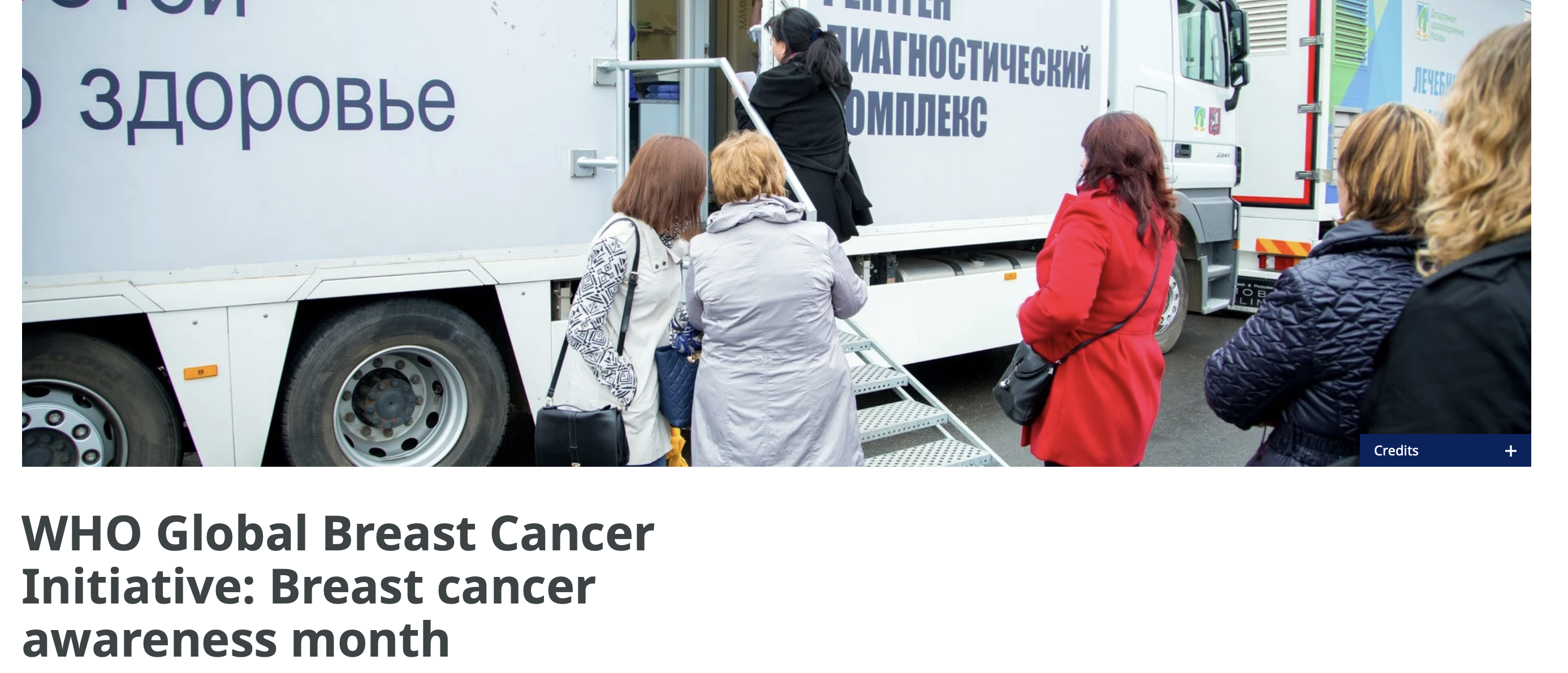Breast Cancer Awareness Month
World Health Organization

Theme: No one should face breast cancer alone
Background
Breast cancer is the most common cancer globally with around 2.3 million new cases every year. It represents one in eight cancer cases in both sexes and a quarter of all cancers in women with 70% mortality occurring in resource-constrained settings. Health system barriers and patient-level factors with low levels of awareness and knowledge are contributing to low uptake of early detection services, with resultant late-stage diagnoses and poor outcomes. In many resource-constrained settings, breast cancer affects a relatively younger population significantly contributing to premature mortality and maternal orphans. Efforts to mitigate breast cancer have significant implications for addressing gender and socioeconomic disparities and sustainable development goals on gender equality, good health and well-being and reduced inequalities. In particular, SDG 3.4 targets to reduce by one-third premature mortality from noncommunicable diseases (NCDs), and SDG 3.8 towards universal health coverage (UHC).
Objectives
- To promote advocacy, awareness, social mobilization and behaviour change communication on breast cancer.
- To provide a platform for knowledge exchange, multisectoral collaboration, action and renewed commitments for achieving GBCI key performance indicators by Member States.
- To launch the breast cancer patient navigation brief and knowledge action portal.
- To encourage focused country policy dialogues on improving breast cancer service delivery, monitoring and evaluation at all levels of care.
